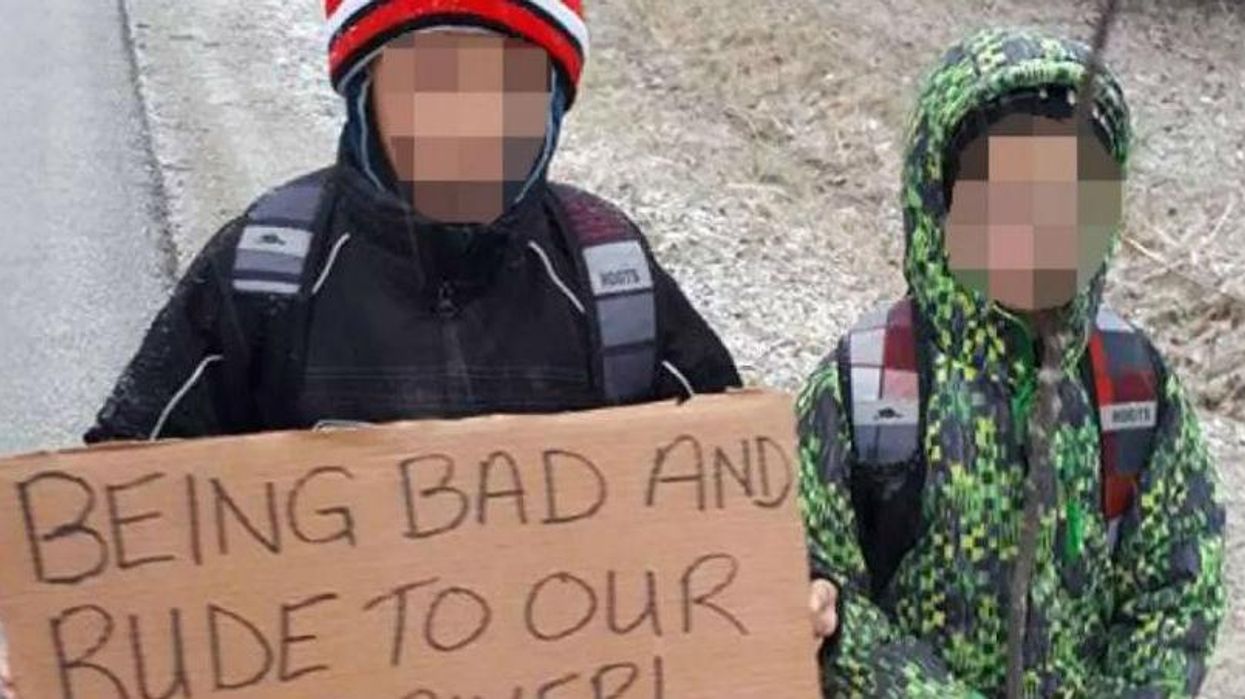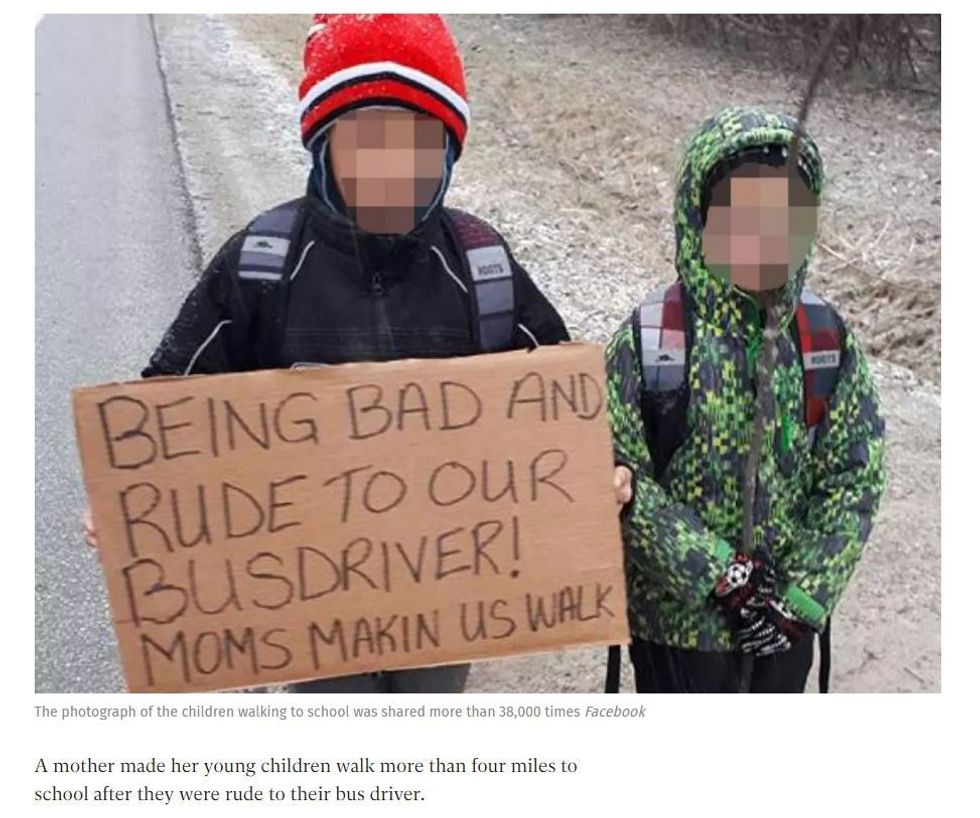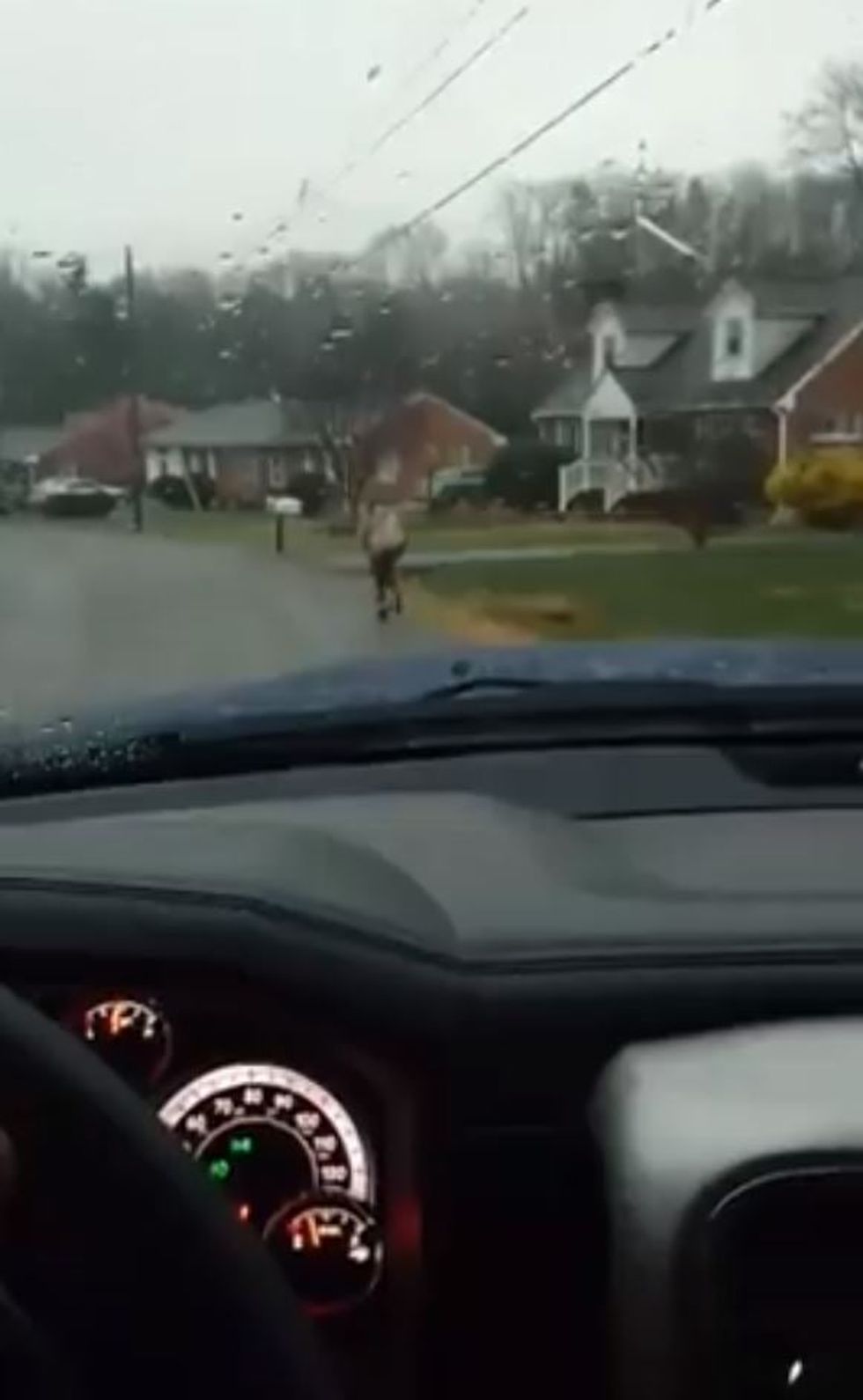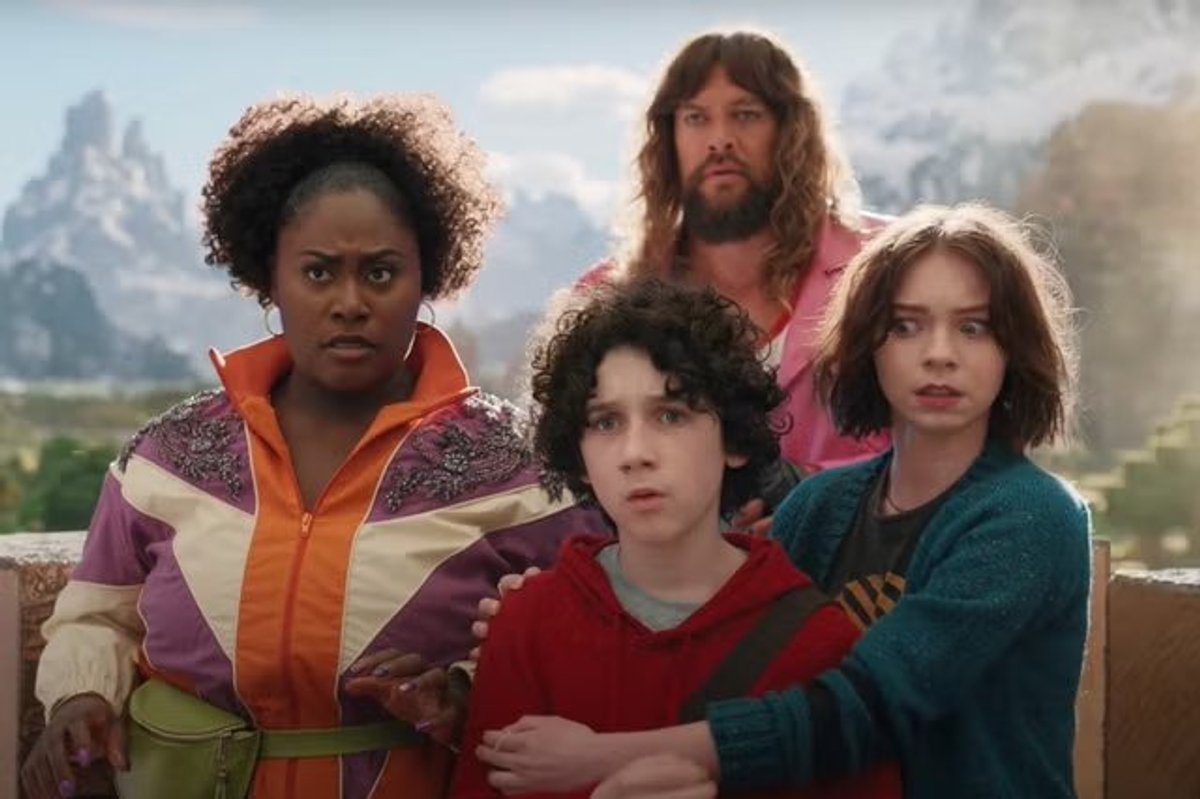News
Narjas Zatat
Apr 10, 2018

Picture:
Screengrab
A disturbing new 'parenting' trend has arisen online: to punish a child's bad behaviour by making them do something humiliating, and posting it online.
Humiliation is, for many parents, a permanent disciplinary tool in their collection, and you can probably pluck examples from your own past of a time you have done something wrong, and were embarrassed by it.
A child steals a sweet? They’re forced to return it to the shopkeeper. A daughter is caught bullying another child? She is forced to write an apology letter and read it out to the class. Children are taught to face up to their mistakes.
However, with the rise of social media, the line between getting your child to recognise wrongdoing and atoning, and abuse, has blurred.
For many people with children, disciplinary tactics have acquired a new lease for life, with parents posting videos punishing their children online. They expose their children to the amusement of their friends, or if they go viral, to hundreds of thousands of strangers online.
Videos of children being punished are often coated in words like ‘serves you right’ and ‘that will teach them’, and receive both praise and criticism.
In one instance, an unnamed mother in Ontario made her children carry a piece of cardboard bearing the words ‘Being bad and rude to our bus driver. Mom’s making us walk’ and posted it online.

A similarly controversial video was posted on Facebook by a father who made his ten-year-old son run to school in the rain, for disturbing the school bus. He told the Washington Post that his son has ADHD, a disorder that can often manifest itself as disruptive behaviour in young children. The video was viewed millions of times.

There are other shocking parenting videos that have unfortunately made it online, like the one allegedly depicting a mother shaving her daughter’s hair as punishment for "bullying a cancer patient” and the barber who disciplined children with an embarrassing haircut.
What is the purpose of posting these videos? Does it help the child learn discipline?
The answer to that, according to child psychiatrist Dr Emma Citron, from King's College London, is a resounding ‘no’.
In fact, humiliating your child and then posting the video online is akin to “child cruelty”.
Speaking to indy100, Dr Citron said:
I think any punishment done to publicise the parents’ prowess and boast about it is actually, on so many levels, child cruelty.
She adds that humiliation tactics are in fact used in interrogation procedures – and have a lasting, psychological impact on a child.
Humiliation has been used as a tactic in interrogation procedures, psychological terrorism sadly over the decades.
It is well known [that] one of the most damaging things you can do to somebody is to humiliate them – and in public.
It’s incredibly damaging. All they do is make the youngsters’ behaviours worse. You know, children with discipline problems very often have a strict, somewhat tyrannical parent and this is well known to make behaviours worse. Because the young person feels bad about themselves and therefore they behave badly, they feel miserable.
Humiliation, she says, can cause a number of psychological issues that can be carried into adulthood:
- Loss of confidence
- Loss of self esteem
- Nervous twitches
- Anxiety
- Depression
- Withdrawal
- Lack of motivation
- Low sense of self
Psychiatrist Dr Michael J Duke adds that adult behaviour isn't managed by humiliating them, so why is it different for children? He told indy100:
'Humiliation’ should have no part in managing another person’s behaviour, child or adult. If an adult has to resort to humiliating a child to manage their behaviour then the adult is demonstrating their lack of ability to creatively and positively manage the child.
Humiliation is destructive and damaging. It has no part in a child’s life.
We would not countenance humiliation as a punishment for adults, why should we do it for children?
Dr Citron argues that these videos, far from being a vehicle through which to ‘discipline’ children, actually serve as a way to make parents feel relevant online. It is fame and validation that drives these videos, rather than parenting.
I think (some) weak, ineffectual, damaging parents may seek a sense of identity and a sense of being somebody rather a nobody if they’ve got not much else in their lives.
The fame aspect is the only thing social media added. It’s a bit like why ethically one has to be so careful when filming anybody in reality TV shows.
When the parents publicise the videos, they’re not getting the youngster’s consent – quite the opposite.
The repercussions of that could be absolutely devastating for these young people in their social lives.
She concludes that exposing your child in this manner online can be – just as with sexualised videos where people expose themselves – "absolutely devastating".
As a parent, there are healthier ways to discipline your child, she advises, by communicating what they have done wrong using encouraging, "psycho-educative" discussions and getting them to empathise and understand things emotionally.
Not by public shaming.
More: Men are sharing their best dad hacks and they are genius
Top 100
The Conversation (0)













